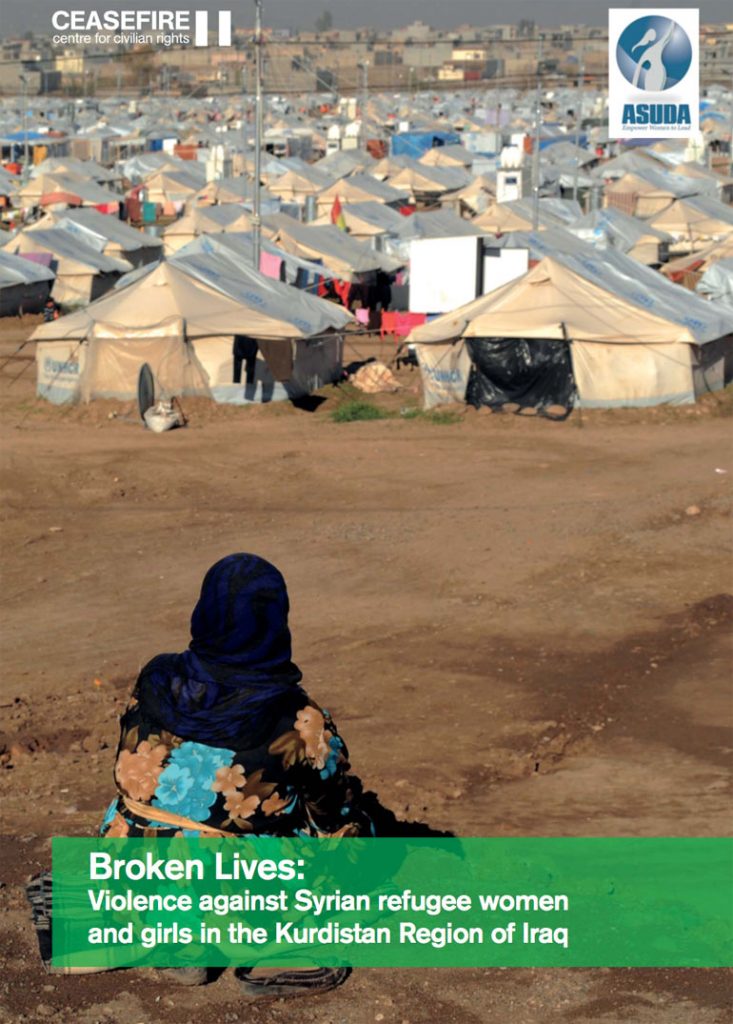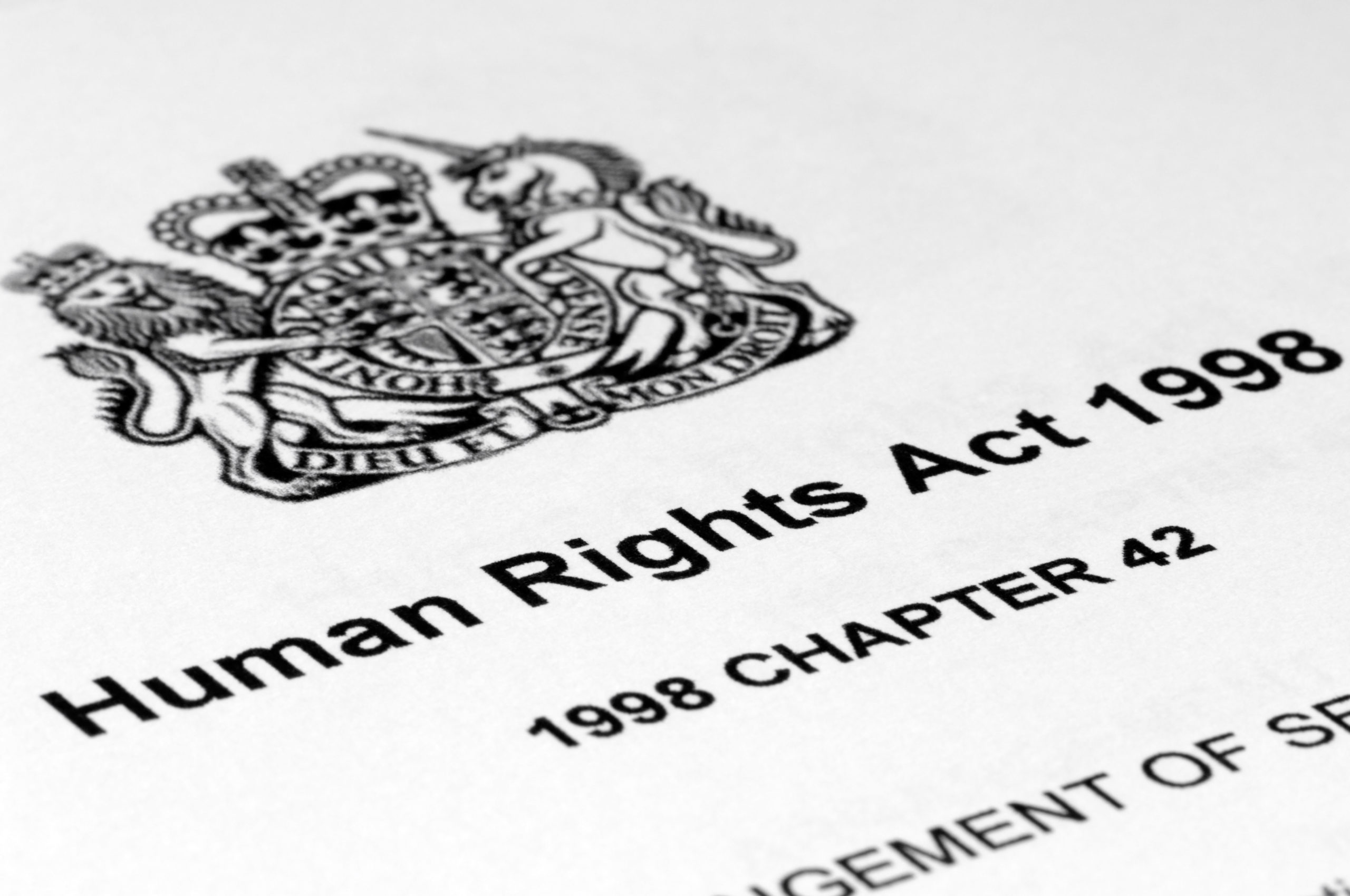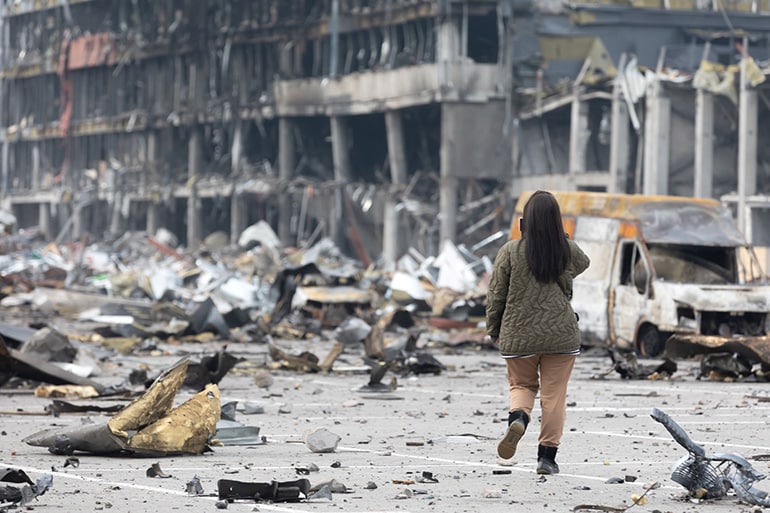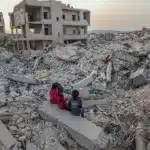May 2018
Seven years after the eruption of the conflict in Syria, refugee women and girls are facing gender-based violence in host countries in the region, says a new report from the Ceasefire Centre for Civilian Rights and Asuda, a leading NGO combating violence against women in the Kurdistan Region of Iraq.
It finds that the pressures associated with displacement, combined with the deteriorating economic situation of refugees in the Kurdistan Region, have led to higher levels of gender-based violence in the Syrian refugee community. In particular, intimate partner violence is on the rise, although other forms of violence within the family are also common.
Seven years after the eruption of the conflict in Syria, refugee women and girls are facing gender-based violence in host countries in the region, says a new report from the Ceasefire Centre for Civilian Rights and Asuda, a leading NGO combating violence against women in the Kurdistan Region of Iraq.
Report: Broken Lives: Violence against Syrian refugee women and girls in the Kurdistan Region of Iraq (Kurdish version | Arabic version) is based on 92 in-depth interviews conducted by the two organizations with Syrian women and girls.
It finds that the pressures associated with displacement, combined with the deteriorating economic situation of refugees in the Kurdistan Region, have led to higher levels of gender-based violence in the Syrian refugee community. In particular, intimate partner violence is on the rise, although other forms of violence within the family are also common.
‘Almost all Syrian women and girls report that the violence they experience either started or became worse after arriving in Iraq,’ says Miriam Puttick, Head of Middle East and North Africa Programmes at the Ceasefire Centre and author of the report. ‘This shows a clear connection between conflict-driven displacement, and levels of violence within the home.’
However, most Syrian women and girls interviewed had not reported their experiences to any authority.
‘The refugee women interviewed, most of whom live outside of official camps, were particularly isolated,’ says Shan Shafik, Project Manager at Asuda who oversaw field research for the report. ‘They had limited knowledge of, and little ability to access, organizations and service providers who might be able to offer support.’
The Kurdistan Regional Government has taken measures in recent years to address gender-based violence in the KR-I, including by passing a law criminalizing domestic violence in 2011. Syrian refugees technically fall under the remit of the law.
However, despite the fact that the government, UN agencies, and NGOs have all incorporated protection from GBV into their programming targeting Syrian refugees, factors including lack of knowledge about the available services and lack of trust in the authorities prevent many survivors from reporting GBV.
Making matters worse, many Syrian households are struggling to make ends meet, causing women to downplay the importance of their experiences of gender-based violence.
‘The Syrian community was hard hit by the economic and security crisis that struck the Kurdistan Region beginning in 2014,’ says Puttick. ‘Finding employment as a refugee became even more difficult, while the international humanitarian response to the Syrian refugee crisis remains chronically underfunded.’
The two organizations argue that as conflict rages on in Syria, humanitarian actors must continue to plan for the long-term needs of the Syrian refugee community in Iraq, including by devoting attention to the specific needs of refugee women and girls. In this regard, the report identifies gaps and shortcomings in the services and remedies currently available to survivors of violence, and presents strategies for improvement.
Notes to editors
The Ceasefire Centre for Civilian Rights is an initiative to develop ‘civilian-led monitoring’ of violations of international humanitarian law or human rights, to pursue legal and political accountability for those responsible for such violations, and to develop the practice of civilian rights.
Asuda for Combating Violence against Women is a women’s rights NGO operating in Iraqi Kurdistan. Asuda’s vision is a world where women enjoy dignity and equal rights and access to resources and opportunities, where all forms of discrimination and marginalisation against women have been eliminated, where violence plays no part in women’s lives.
The report was produced with the financial assistance of the UN Trust Fund to End Violence against Women.
For further information about the report or to arrange interviews, email contact@ceasefire.org.























